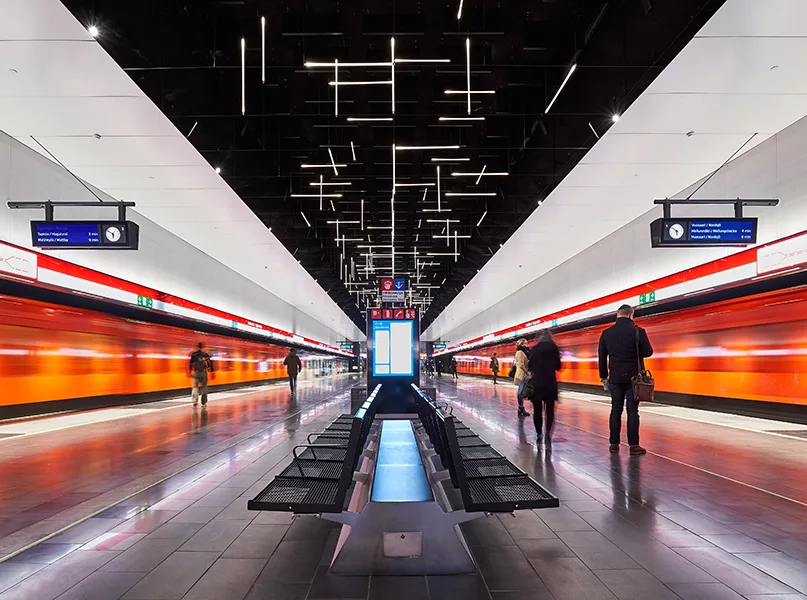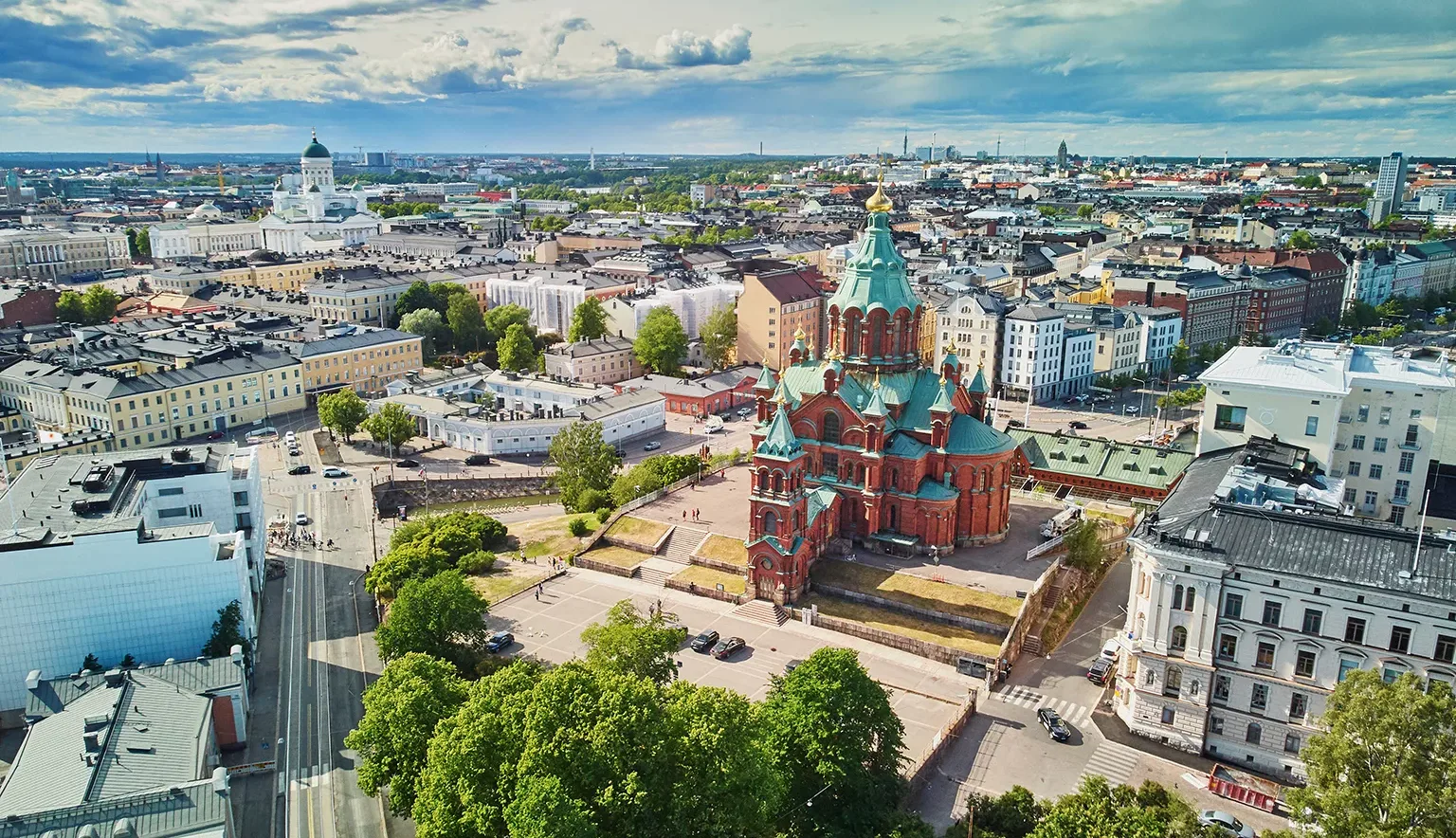With unmatched calmness and tranquillity roaming its streets, and a proactive and thoughtful attitude towards its outstanding forests and seascapes, Helsinki has made its mark on the map as a culinary centre of Europe, bursting with celebration.
INTRODUCTION
Gazing out across the Gulf of Finland, Helsinki extends from the country’s southern peninsula and has become a cornerstone of the Finnish tourism industry.
Projecting a warm, welcoming, and relaxed atmosphere towards its visitors, the capital city has become synonymous with diverse cultural heritage and tremendous environmental commitments.
In fact, Helsinki is internationally renowned for its green efforts and proud to be the fourth most sustainable city in the world according to the Global Destination Sustainability Index. Environmentalism permeates every element of the city, as the administration and population alike encourage the conservation of its spectacularly green, natural areas.
Wandering the streets of Helsinki, travellers from near and far are enticed by the smells, sounds, and tastes of the city’s bustling gastronomy scene and variety of adventurous flavours. Indeed, Helsinki’s green dedication to nature is interwoven within its culinary landscape and heritage ties.
The historical narrative behind the city’s most traditional dishes follows the changing tides of the seasons and the seas, transforming original ingredients into flavoursome and delectable meals using innovative techniques.
Today, through the thronging trade and exchange of ideas and recipes, the city’s food offerings have grown to an eclectic appreciation of the many cultures that have featured in Helsinki’s past, as well as the manifold populations that now characterise this wonderful capital.
Gastronomy aside, Helsinki is a place where people can commemorate the turning of the seasons and the city’s patchwork culture all year round. Travellers can delight in a range of flourishing festivals, including Helsinki Day on 12th June, which offers over 180 free events up and down the city’s streets, alongside Helsinki Festival, Finland’s largest arts fair taking place in August.
Seasonally, the city has many exciting events that celebrate the warmer seasons, such as Flow Festival, showcasing a vast range of sights and sounds as thousands gather to see the latest in urban music and arts. Elsewhere, the streets come alive with the electrifying sound of the Tuska Open Air Metal Festival, also held during the height of summer in June.
With tantalising tastes, a lively, celebratory atmosphere, and a thoughtful and forward-thinking attitude towards nature, Helsinki has become a standout location in Europe, ripe with unique and unforgettable experiences that last a lifetime.
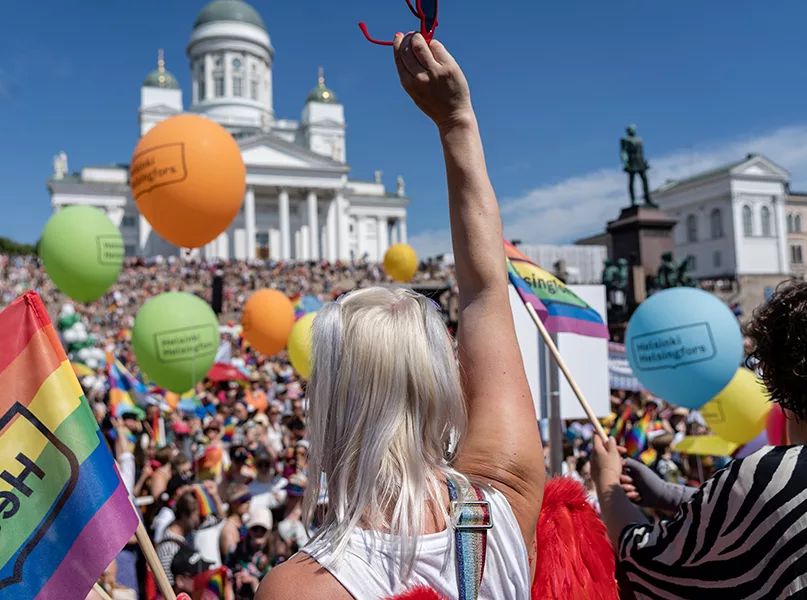
Q&A WITH LEENA LASSILA, DIRECTOR OF VISITOR ATTRACTION, HELSINKI PARTNERS
With the goal of ensuring Helsinki’s everlasting happiness, Helsinki Partners is a marketing, investment, and talent attraction organisation that endeavours to further expand and bring to life the city’s reputation and brand on the global stage. We speak to Leena Lassila, Director of Visitor Attraction, about how the company utilises its unmatched knowledge of Helsinki to unlock the city’s secrets.
Firstly, how does Helsinki Partners utilise its passion for the city and extensive knowledge of the tourism sector to bolster the region’s presence as an ideal travel destination?
Leena Lassila, Director of Visitor Attraction (LL): Helsinki Partners has 60 passionate employees who represent different backgrounds, ages, and expertise, but share a love for our city. We market and promote Helsinki from many different perspectives, from investment activities to public relations and destination marketing for this bubbly, vivid, and beautiful city of ours. We work closely with stakeholders in Helsinki to strengthen global awareness of the city and its brand.
What is Helsinki’s secret to being the happiest city in the world?
LL: There is no secret recipe for happiness; the answer is simply highly satisfied citizens. We ensure that state institutions are of high quality, non-corrupt, able to deliver on their promises, and generous in taking care of citizens in various adversities. When citizens feel happy, visitors feel welcome.
We enjoy simple pleasures – clean air, pure water, relaxing saunas, unique food, woodland and seashore walks, various events, and everyday life.
Happiness here is the calm and peaceful type; it’s an appreciation for how things work and the ability to pause and admire the little things in life. Therefore, Helsinki is a place where everyone’s free to be themselves.
Earning a reputation for outstanding culinary experiences, how does Helsinki stand out from the rest of Europe in terms of its flourishing food scene?
LL: Finnish food is a unique combination of cultural heritage from Eastern and Western Europe combined with new innovations. Our culinary culture values traditional craftmanship and pure, local flavours, and changes from one season to another. For example, spring is for new growth and fresh herbs; summer is for new potatoes, berries, and vegetables; autumn is for mushrooms and game; and winter is for innovative ways to conserve food by drying, salting, pickling, and so on.
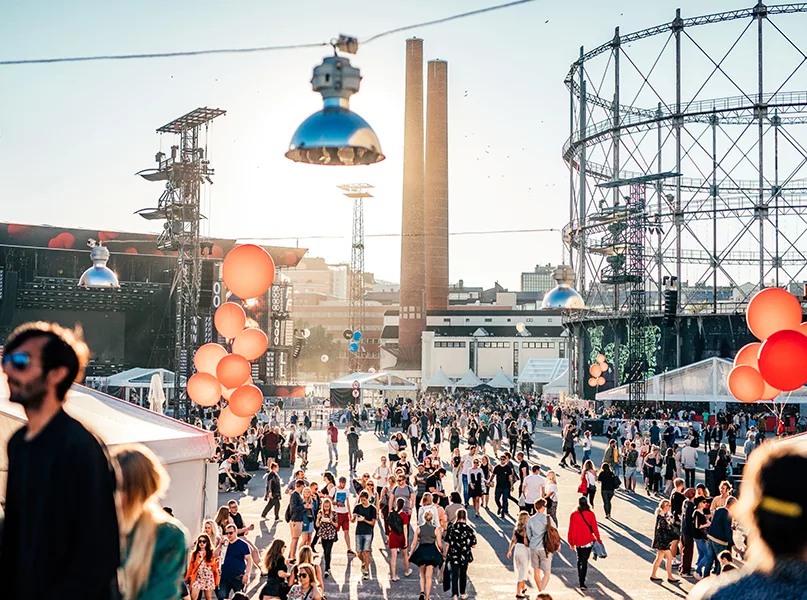
From street markets to Michelin-star restaurants, where would you suggest for the best authentic Helsinki cuisine?
LL: We are proud of our wide selection of restaurants, cafés, and food experiences in the city – there is always something new and exciting for visitors to try!
I would suggest visitors start their morning with a coffee and smoked salmon with rye bread in one of our three iconic market halls. In fact, did you know that Finns drink the most coffee per capita in the world?
Travellers can continue their food journey by visiting Helsinki Central Library Oodi, where you will find a great lunch spot and the epicentre of Finnish happiness. Dinner can be anything from a traditional Finnish-style dish to more international flavours, with the Helsinki spirit running throughout all our cuisines.
Visitors can also enjoy global tastes on the top floor of the former Stora Enso headquarters, also known as the ‘sugar cube’, as well as other zero-waste food establishments that are at the forefront of sustainability. Indeed, environmentalism is at the core of many of our dining experiences, with four Michelin green-starred restaurants in the city!
Across Helsinki’s range of food events throughout the year, which one would you most recommend travellers visit?
LL: The most iconic is the Helsinki Baltic Herring Market, which was established in 1743 and is therefore one of the oldest events in Finland.
Throughout the years, the market has evolved to become a beloved public event bringing together old archipelagic traditions and modern food culture, as it aims to hold onto tradition and support the livelihood of fishers. The Helsinki Baltic Herring Market celebrates herring as a sustainable and tasty food choice, whilst fishing and eating the delicacy also helps maintain a healthier Baltic Sea.
The Helsinki Coffee Festival and Ice Cream and Chocolate Carnival also reveal our true passions. Finns are first not only in coffee consumption per capita, but also ice cream.
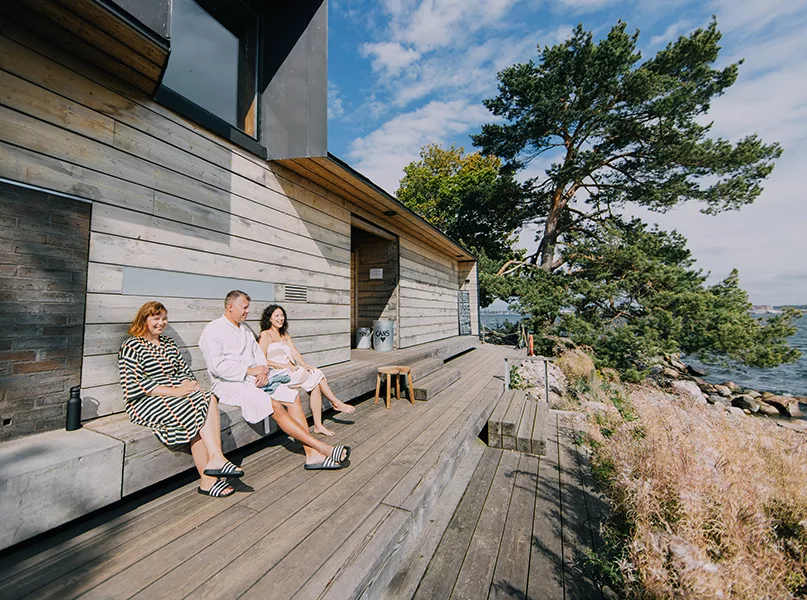
Known as one of the most sustainable cities in the world, how does the organisation incorporate eco-friendly practices into Helsinki’s tourism sector?
LL: The city is committed to sustainability across all its activities. According to many international indicators, Helsinki and its tourism sector are doing well in terms of environmental development, to the extent that sustainability is considered a differentiating factor and competitive advantage for us.
Environmental growth and renewal will become a reality if public and private actors continue to change their practices responsibly and on a long-term basis. Succeeding in this also requires systematic planning, measuring, monitoring, communication, and support for companies and other operators on the path towards environmental certification.
Examples of this include supporting tourism companies in developing their sustainable practices and outlining an environmental tourism policy that guides all the city’s tourism development efforts.
Additionally, the Helsinki Tourism and Events Programme 2022-2026 is a joint document created by the Helsinki City Group to support the long-term development of the tourism and events sectors. The programme guides the operations of the group for the benefit of tourists, residents, event visitors, local businesses, and other actors. Ultimately, the goal is to be the most sustainable destination in the world.
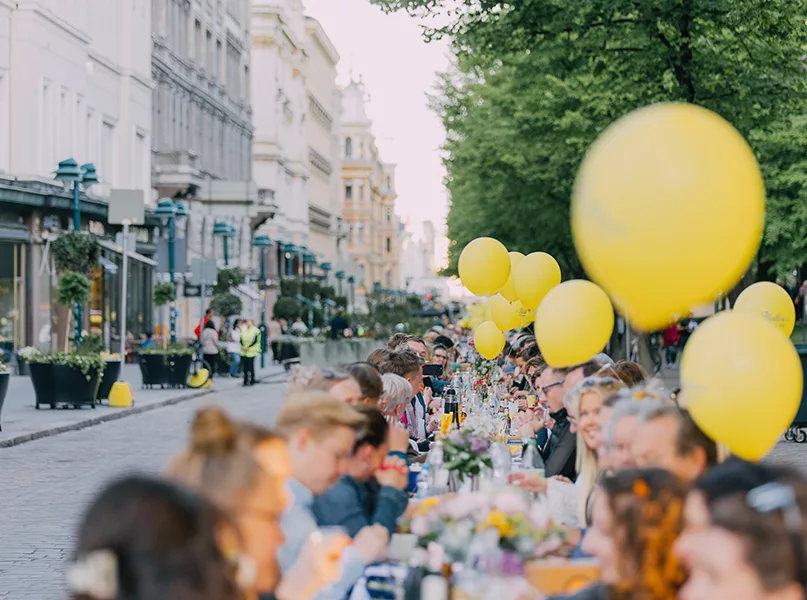
As an area of natural beauty, where would you recommend visitors go to enjoy Helsinki’s flora and fauna?
LL: Travellers can enjoy the city’s multiple islands. Seurasaari and Lammassaari, for example, can be reached by public transport and are connected by bridges. During the summer, Vallisaari offers versatile nature and contemporary art, and next year, the third edition of Helsinki Biennial will be organised on the island.
Finally, how do you see Helsinki’s tourism industry evolving over the next five years?
LL: We are committed to consistent growth and are seeing first-hand how Helsinki is evolving to become the perfect destination for a longer leisure stay, business events, and even luxury travel. As part of our growth, we monitor our residents’ feelings about the increasing number of visitors. In the most recent study, citizens said they are happy to help visitors and welcome all travellers to Helsinki.
The city is for visitors who are passionate about sustainability, and we provide space to feel, hear, and experience more. Helsinki offers the freedom to have it all – a totally unique combination of quirky urban city vibes and peaceful nature.
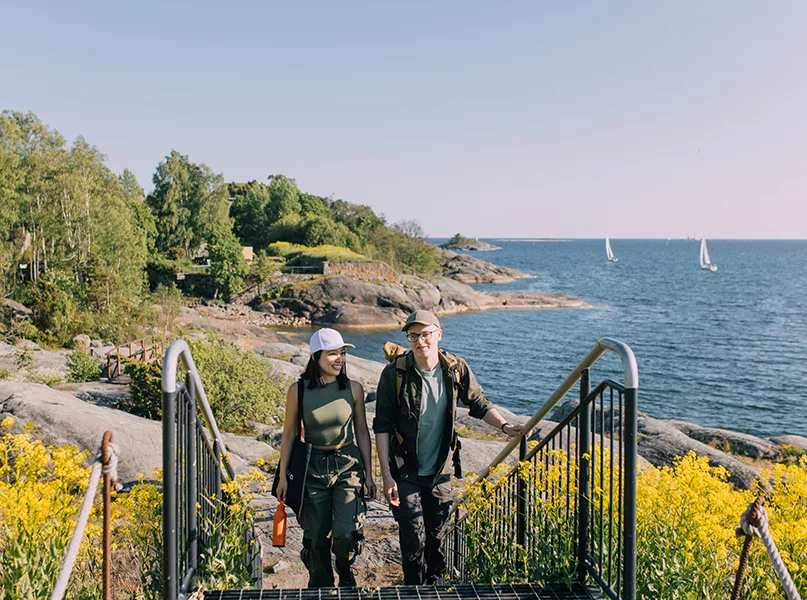
TORI QUARTERS IN FOCUS
More than simply a historical centre, Tori Quarters, or Torikorttelit as it is locally known, is the cultural nucleus of Helsinki, where the old town meets the hustle and bustle of the contemporary city. Take a gentle stroll around the quarters’ beautiful amalgamation of winding streets, bespoke, quirky boutiques, and the friendly atmosphere typical of a maritime hub.
Tori Quarters has an eventful and intriguing history, used as Helsinki’s centre during the Russian occupation in the 19th century. To mark this status, the quarters were designed in a Neoclassical style that is kept alive to this day. The region’s oldest building is the effortlessly grand Sederholm House, which was built in 1757 and now exists as the Helsinki City Museum.
As such, the quarters offer both historical architecture and modern liveliness, as its vast buildings are often used for pop-up events that usher in the city’s urban culture.
Tori Quarters is also great for travellers to gain a true essence of Helsinki’s sustainable way of living. Delve into shops containing eclectic artisan items and unique, hand-made products that last a lifetime and are made with sustainably sourced resources.
Visitors can also relax and indulge in the quarters’ abundance of coffee houses, sophisticated bars, and restaurants, where tantalising flavours, experimental culinary art, and traditional Finnish cuisines permeate.
Perfect for those who want a short glimpse of the city or to immerse in Helsinki’s nuanced nature where old and new converge, Tori Quarters is certainly worth a visit.
OUTLOOK RECOMMENDS
Do:
FOR A REJUVENATED AND REFRESHING POOL EXPERIENCE…
Allas Sea Pool provides everything for seasoned swimmers and sunbathers alike, with both warm water and sea water pools. Open from morning to night and across all seasons, the 25-metre heated pool lets swimmers practice their agility whilst the sea water pool provides the best the beach has to offer all in one place.
FOR OUTDOOR AND INDOOR LIVING IN THE HEART OF HELSINKI’S GREENERY…
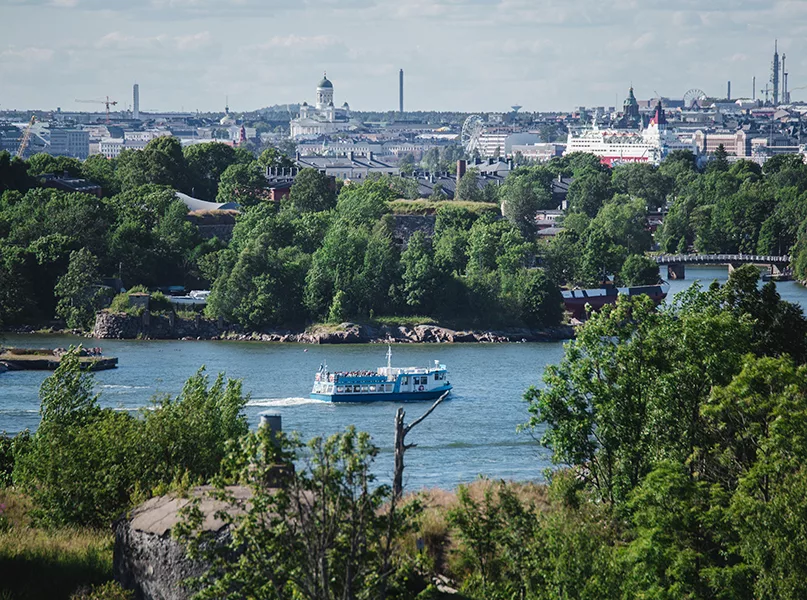
FOR AN OTHERWORLDLY AND SPECTACULAR EVENT…
FOR MAKING BOLD STRIDES IN THE FOREST…
Haltiavuori Nature Trail opens up a brand-new perspective of Helsinki to tourists, as it allows avid hikers to immerse themselves in undulating emerald woodland. Taking trekkers on a journey across a six kilometre trail, the path is not for the faint hearted and takes approximately 90 minutes to traverse for those with experience.
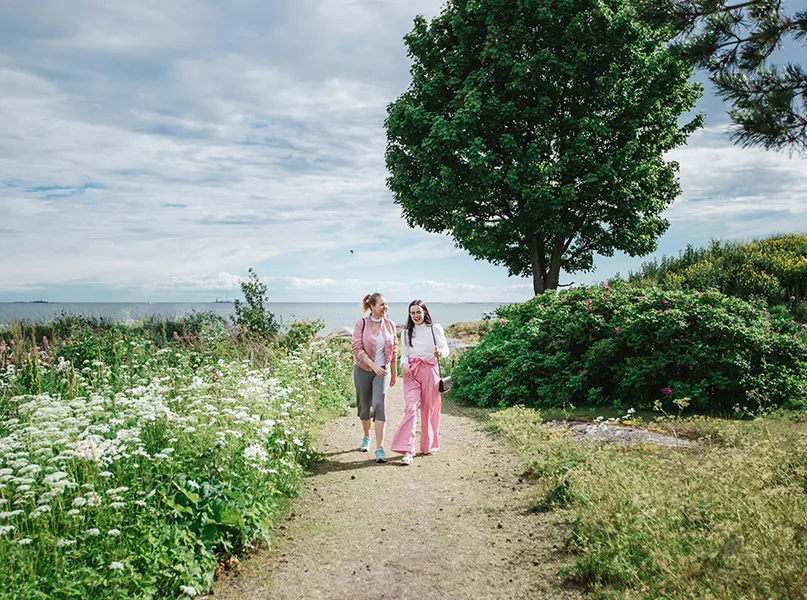
LANDMARK ATTRACTIONS
Ateneum Art Museum
Located in the heart of the city, this internationally renowned museum heralds the largest collection of art the city has to offer, showcasing over 30,000 exceptional pieces. Each purposefully placed composition takes its onlookers on a journey through 300 years of Finnish art history.
Suomenlinna Sea Fortress
A UNESCO World Heritage Site since 1991, it is now home to around 800 people. Visitors to the fortress can enjoy a guided tour that takes guests on a journey through the main sites and key events of its heritage. The fortress also offers budding historians six different museums as well as an abundance of cafés, restaurants, and fine dining options, alongside its very own brewery.
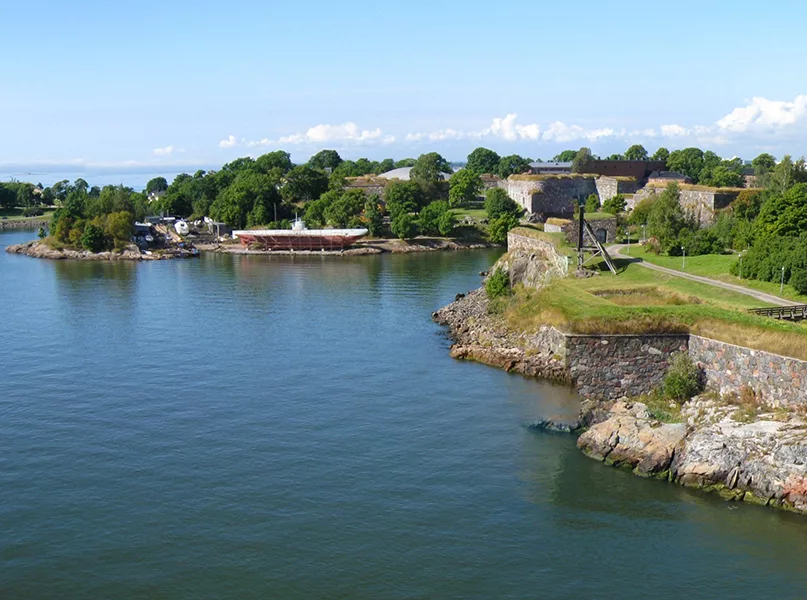
Helsinki Central Library Oodi
A treasure trove of over 100,000 books and research papers, the facility is a modern interpretation of a library, offering digital studios with state-of-the-art equipment, an urban workshop that provides access to top-of-the-range printers, laser cutters, and more, as well as a communal area for idea sharing and collaboration. The library building is also one of architectural prowess, matching the exceptionality of its offerings.
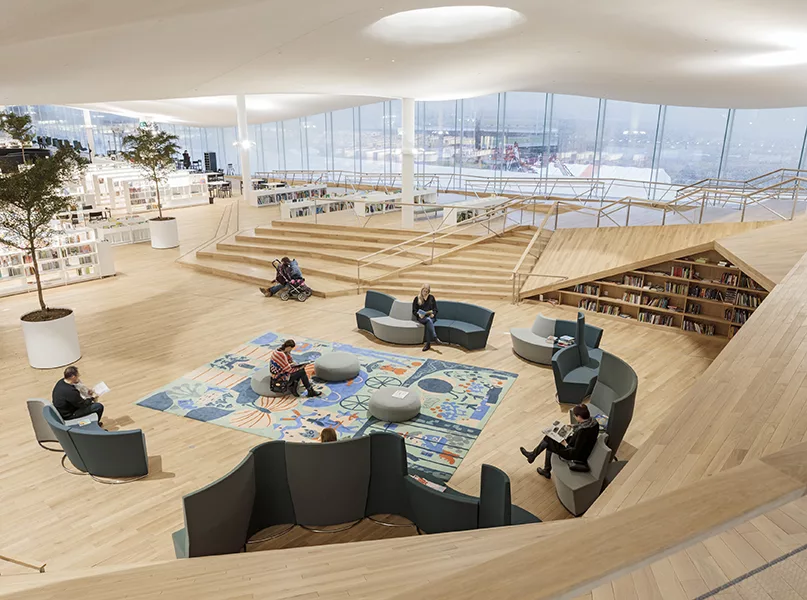
GETTING THERE AND AROUND
Helsinki’s carefree and enjoyable atmosphere extends to its methods of transportation around the city. Indeed, it offers a vast range of travel options, whether you want to zip from one side to the other, take a gentle stroll, or glide around the capital with its advanced cycle network route.
One secret to the city’s success is its highly comprehensive and efficient public transport system, which begins once travellers land on the runway, as commuter trains operate daily from Helsinki Central Railway Station in the centre to Helsinki Airport.
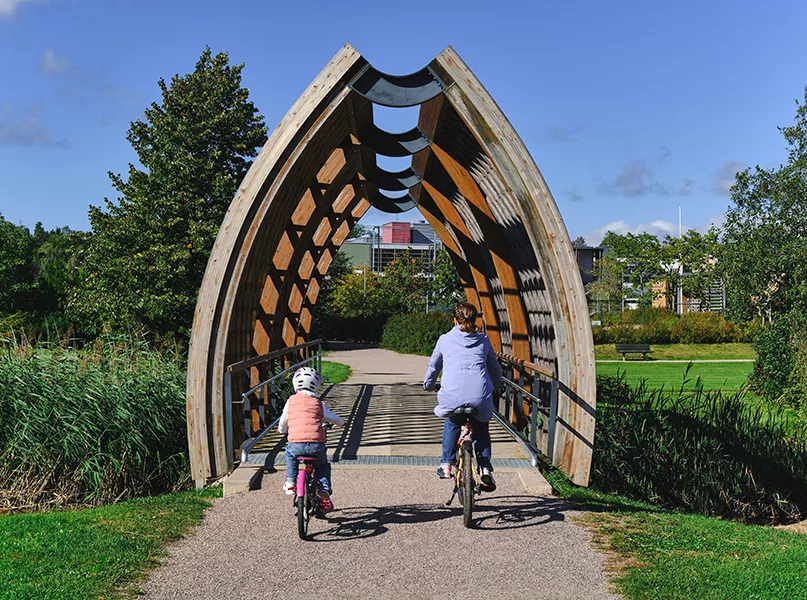
Once in the heart of the city, visitors quickly find that many of its main destinations are within walking distance, with lots of maps dotted around the city centre to guide both tourists and residents. However, if you wish to see more of Helsinki in all its glory, cycling is the way to go. Travellers can also utilise the iconic yellow bikes available across the capital and make the most of the extensive pedestrian and cycling paths that run throughout the city on a disused railway line.
Hopping on a tram is also a great way to see the sights, particularly if you want to visit many locations in one day, as day tickets can be purchased via the HSL mobile app, ticket machines, and kiosks across the city. The tram network covers the main tourist spots as well as lesser-known areas that are certainly worth exploring.
As if this wasn’t enough, Helsinki’s metro system operates across the city and is the best way to experience Finland’s beautiful green landscapes in the surrounding area.
